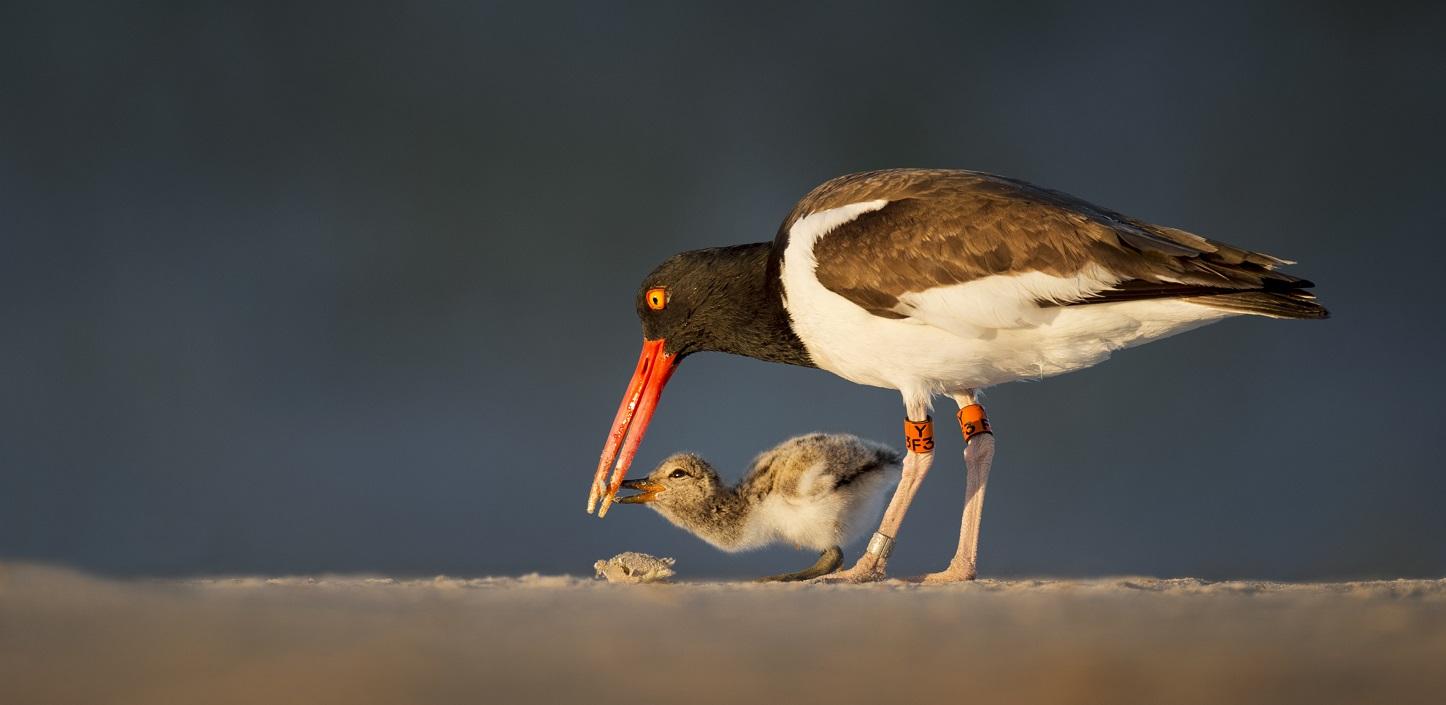
NFWF Announces Release of the National Coastal Resilience Fund 2023 Request for Proposals
The National Coastal Resilience Fund will award approximately $140 million in grant funding to enhance coastal communities’ natural defenses against severe weather and flooding
WASHINGTON, D.C. (February 16, 2023) – The National Fish and Wildlife Foundation (NFWF) today announced the release of the 2023 Request for Proposals for the National Coastal Resilience Fund (NCRF). The NCRF provides grant funding to restore and strengthen “natural coastal infrastructure”—like salt marshes, coral reefs, and beach dunes—that provide a first line of defense for coastal communities and ecosystems from increasing impacts due to rising sea levels and more intense storms.
NCRF is a public-private partnership between NFWF, NOAA, the U.S. Department of Defense, Shell USA, TransRe and Oxy. This year, the NCRF’s second year of receiving increased funding from the Bipartisan Infrastructure Law, NFWF expects to invest approximately $140 million in grants to support nature-based coastal resilience solutions.
The NCRF focuses on projects that increase protection for communities from coastal hazards, such as flooding and erosion, while also enhancing coastal habitats that are vital for fish and wildlife. NFWF also prioritizes projects that address the disproportionate risks faced by communities on the frontlines of climate change and projects that are community led or incorporate direct community engagement.
“The Bipartisan Infrastructure Law is providing another record investment in community efforts to keep coasts healthy and resilient for future generations,” said NOAA Administrator Rick Spinrad, Ph.D. “NOAA is committed to working with our partners to advance conservation efforts that protect lives and livelihoods, as our agency works to build more resilient communities that create economic and environmental benefits for everyone.”
“As we see unprecedented changes along our coasts, the NCRF is more important than ever,” said Jeff Trandahl, executive director and CEO of NFWF. “This program provides the resources that local communities need to plan, design, and rebuild important natural infrastructure along our coasts that is essential for safeguarding both people and wildlife. NCRF projects pay multiple dividends by not only reducing risks to coastal communities during extreme weather, but also by delivering numerous additional benefits, including enhancing habitats for fish and wildlife, creating recreational amenities for residents, improving water and air quality, and capturing and storing carbon.”
The demand for NCRF funding continues to outpace need as coastal communities and ecosystems face increasing threats. Property damage to homes, businesses, and infrastructure across coastal regions are soaring as the U.S. continues to experience more intense storms, heavier rainfall events, and rising sea levels driving nuisance flooding.
In 2022, the U.S. experienced 18 separate climate disasters causing $165 billion in damages, the third highest on record, including destructive coastal storms like hurricanes Fiona and Ian and Typhoon Merbok, NOAA research indicates that flooding will increase ten-fold in many coastal communities by mid-century as sea-levels continue to rise. At the same time important natural buffers—like wetlands and barrier islands—are being lost to erosion, inundation, and development, which is diminishing the resilience of coastal communities and threatening many fish and wildlife species that depend on these habitats to breed, feed and rest.
Since its creation in 2018, the NCRF has awarded nearly $278 million in grant funding to support 270 projects across 29 coastal states and territories. These grants have leveraged more than $301 million in funding and delivered a total conservation impact of $579 million over five years. Since 2018, the NCRF has invested in projects that will restore more than 13,000 acres of wetlands, reconnect more than 23,000 acres of floodplain, and rebuild more than 370 acres of oyster and coral reefs, all of which are contributing to healthier and more resilient coastal communities and ecosystems. These locally led projects are aligned with the Administration’s conservation goals. NCRF is a successful public-private partnership that has demonstrated how investments in conservation are addressing climate and biodiversity challenges in coastal communities.
NCRF pre-proposals are due April 12, 2023. The full Request for Proposals can be found here: https://www.nfwf.org/programs/national-coastal-resilience-fund
NFWF recognizes that there is no “one-size-fits all” approach for building resilience and that communities are at different stages of their resilience efforts. To meet community need and address regional variation, NFWF funds all stages of project development to help grantees move projects through a “pipeline” from planning to implementation:
- Community Capacity Building and Planning
- Project Site Assessment and Preliminary Design
- Project Final Design and Permitting
- Project Restoration Implementation
Projects must be located within the coastal areas of U.S. coastal states, including the Great Lakes states, and U.S. territories including Puerto Rico, the U.S. Virgin Islands, American Samoa, Guam, and the Commonwealth of the Northern Mariana Islands.
The NCRF prioritizes innovative and transferrable solutions that advance best practices for helping communities adapt to increasing climate risks while also delivering the greatest conservation benefits for fish and wildlife. Projects must address current threats while also ensuring that restoration efforts are durable, sustainable and adapted to changing environmental conditions. NFWF also works to learn from our investments and refine our approach by monitoring and evaluating project outcomes and sharing best practices for implementing nature-based solutions.
For additional information about the NCRF please visit: https://www.nfwf.org/coastalresilience.
About the National Fish and Wildlife Foundation
Chartered by Congress in 1984, the National Fish and Wildlife Foundation (NFWF) protects and restores the nation’s fish, wildlife, plants and habitats. Working with federal, corporate, foundation and individual partners, NFWF has funded more than 6,000 organizations and generated a total conservation impact of $7.4 billion. Learn more at www.nfwf.org.
###
Contact:
Rob Blumenthal, 202-857-0166, rob.blumenthal@nfwf.org